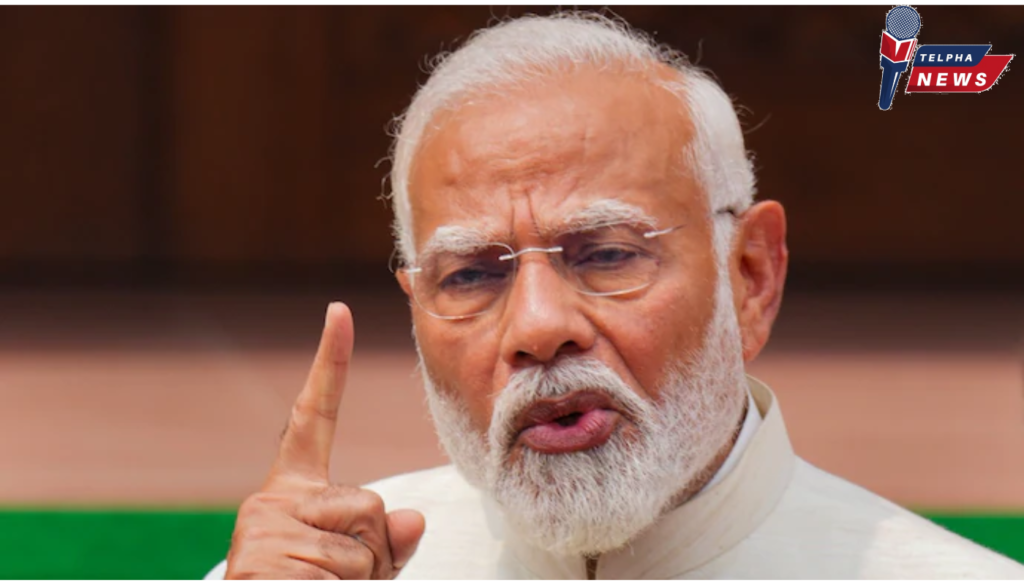While marking the 50th anniversary of the Emergency, PM Modi slammed the Congress for imposing the Emergency in 1975 and accused the party of disregarding democratic principles and “turning the country into a jail”.

Remembering the Emergency: A Dark Chapter in Indian Democracy
June 25, 2024, marks the 50th anniversary of the Emergency in India, a period often remembered as a dark chapter in the history of Indian democracy. On this day, Prime Minister Narendra Modi, along with several key BJP leaders, took the opportunity to criticize the Congress party for imposing the Emergency in 1975 and accused them of trampling democratic principles and turning the country into a jail.
The Historical Context of the Emergency
The Emergency, imposed by then Prime Minister Indira Gandhi on June 25, 1975, lasted for 21 months until 1977. During this period, civil liberties were suspended, political opponents were jailed, and press censorship was enforced. This drastic move was justified by the government as necessary to maintain law and order, but it has since been widely criticized as an abuse of power aimed at retaining political control.
PM Modi’s Address on the 50th Anniversary
Prime Minister Narendra Modi, in a series of tweets and public addresses, lambasted the Congress for its actions during the Emergency. He paid homage to those who resisted the Emergency and highlighted how the Congress “subverted basic freedoms and trampled the Constitution.”
“Today is a day to pay homage to all those great men and women who resisted the Emergency. The #DarkDaysOfEmergency remind us of how the Congress Party subverted basic freedoms and trampled over the Constitution of India, which every Indian respects greatly,” PM Modi tweeted.
PM Modi’s remarks underscored the view that the Congress party’s actions during the Emergency were a gross violation of democratic principles. He accused the party of using regressive policies to target dissenters and the weakest sections of society.
Reactions from BJP Leaders
Other senior BJP leaders echoed PM Modi’s sentiments. Union Home Minister Amit Shah accused the Congress of “killing” democracy for the sake of power. He pointed out that the Emergency was a period of severe repression, with censorship of the media, judicial restrictions, and constitutional changes made to suit the ruling party’s agenda.
“Congress has a long history of killing democracy and repeatedly attacking it. The Emergency imposed by Congress on this day in 1975 is the biggest example of this,” Amit Shah tweeted.
Union Defence Minister Rajnath Singh referred to the Emergency as a “dark chapter” in Indian democracy. He acknowledged the struggles of those who fought to restore democratic norms and faced physical and mental torture.
“Exactly 49 years ago, Emergency was imposed in India by the then Congress government. Emergency is a dark chapter in the history of our country’s democracy which cannot be forgotten even if one wants to,” he stated.
Union Health Minister JP Nadda also joined in, emphasizing that the Congress, which now claims to be a guardian of democracy, left no effort to suppress voices defending constitutional values during the Emergency.
“During this period, those who today claim to be guardians of Indian democracy left no effort to suppress voices raised in defense of constitutional values,” JP Nadda remarked.
Reflecting on the Legacy of the Emergency
The Emergency remains a pivotal moment in India’s political history, reminding the nation of the fragility of democratic institutions and the importance of safeguarding civil liberties. The BJP’s recent comments on the anniversary serve to highlight the party’s ongoing critique of the Congress and reinforce its commitment to upholding democratic principles.
As India commemorates the 50th anniversary of the Emergency, it is crucial to reflect on the lessons learned from this period. The resilience shown by those who opposed the Emergency, their fight for democracy, and the restoration of constitutional order remain a testament to the strength of democratic ideals in India.
Conclusion
The discourse surrounding the 50th anniversary of the Emergency illustrates the deep political divides in India and the enduring impact of this historical event on contemporary politics. While the Emergency period was marked by significant repression and controversy, it also served as a catalyst for a stronger commitment to democratic governance and civil liberties in the years that followed. As India moves forward, remembering the sacrifices of those who resisted the Emergency is vital to ensuring that such a dark chapter never repeats itself.